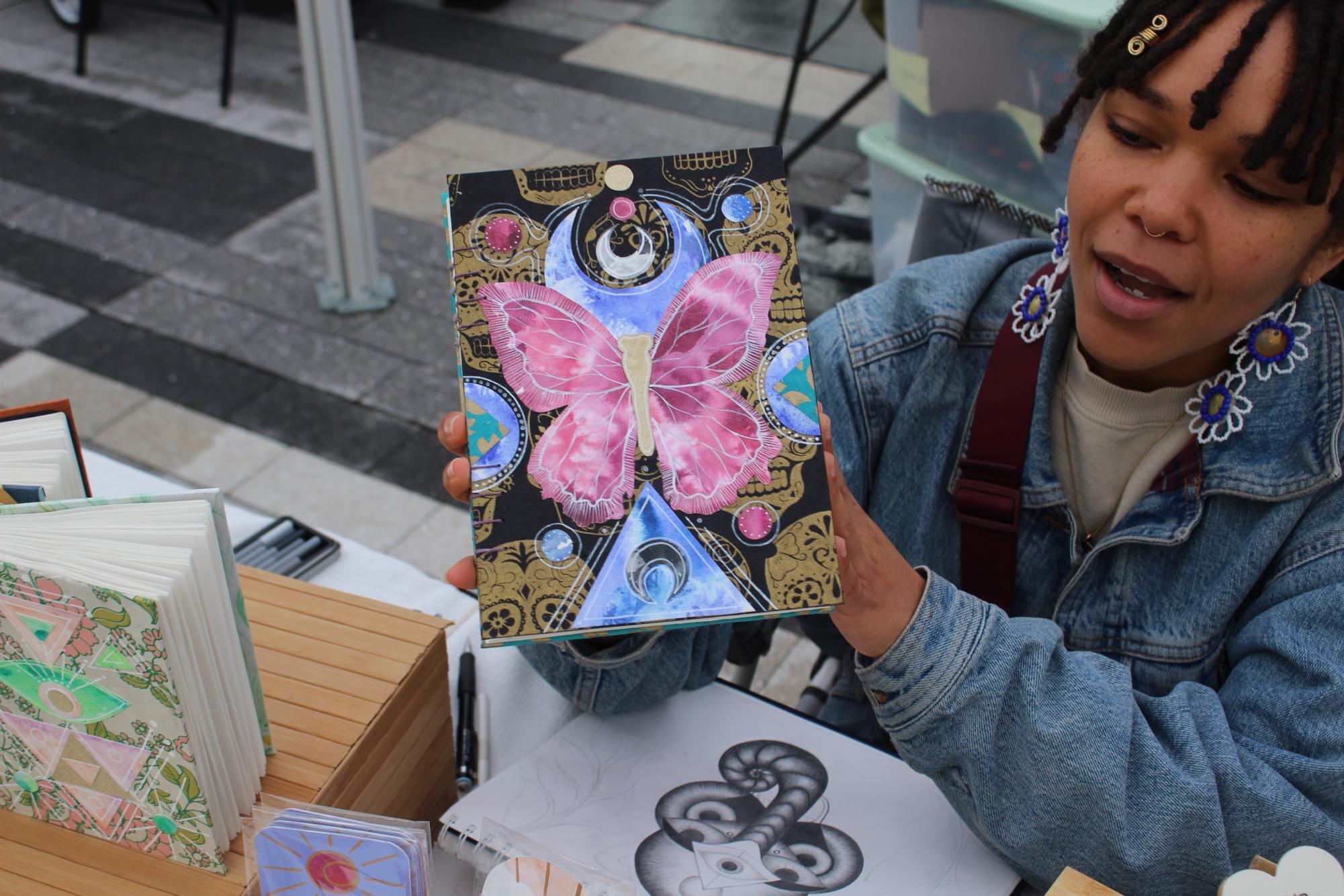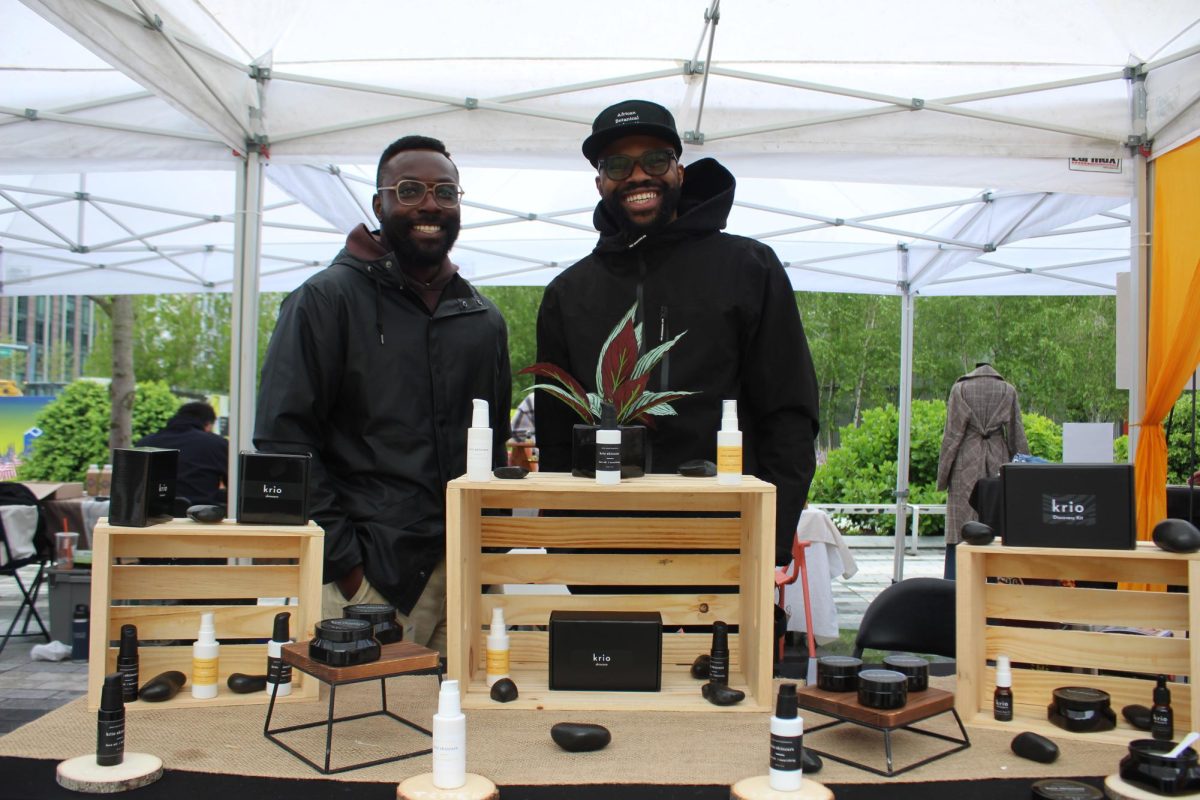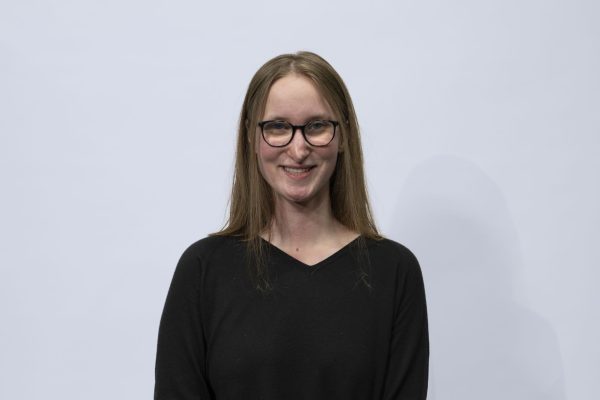As shoppers perused pop-ups at the Seaport x Black Owned Bos. Market, passersby could see Tony Johnson and Greg Bailey laughing and effortlessly engaging customers in conversation. Friends since childhood when they grew up going to church together, they achieved a new milestone in 2019: business partners.
Johnson, the founder of Krio Skincare, approached Bailey with the idea at a Christmas party in 2019. Now, the two work together on the brand, with most of the ingredients sourced from Sierra Leone, inspired by Johnson’s Sierra Leonean roots. Jonhson said they emphasize a traditionally African plant-based approach to skincare and aim to make skincare more approachable for men.
Johnson and Bailey were among the 30 vendors at the fifth annual Seaport x Black Owned Bos. Market, an event highlighting local Black-owned businesses. There are typically six Seaport x Black Owned Bos. markets in a year. May 19 kicked off the 2024 season, themed, “Rhythm and Blooms” with the last one being October 20. Although some vendors may return to more than one market a year, each market typically offers a new selection of businesses.
Toward the entrance of the “Rhythm and Blooms” market sat Dominique Dixon, owner and designer of Mahogani Shop, where she sold jewelry made out of polymer clay.
“I have a design background, so I get inspired by literally everything,” she said. “Someone could be walking down the street with something cool, and I’m like, ‘I should try to do a print like that.” Dixon added that “a lot of the African colors and African diaspora, as well as hip-hop culture, the ‘80s, more of the funky styles” also influence her work.
A few tents down was Sweet Glam, a business run by a mother and daughter combining sweets and cosmetics. In 2020, Elaine Ellis’ daughter SaiAnna came up with the idea to send people kits of ingredients to bake at home while COVID-19 lockdown orders were in place. Now, they have expanded the business to offer an array of lip glosses, eyelashes, body scrubs and baked goods.
“I love working with her,” SaiAnna Ellis said, looking at her mom. “We have our times because, you know, family … But overall, it’s been really good.”
“Especially because you’re older,” her mom replied.
Through the line of tents and around the corner sat Mayté Castillo, an artist who works in many mediums and the owner of Mayté Ifeya. A self-proclaimed “intuitive artist,” Castillo said the biggest inspiration for her art is her own healing journey and using “art as medicine.”
“Art, to me, is my own kind of medicine practice or healing practice,” Castillo said, her pencil hovering above her latest drawing. “It’s very grounding and very centering, where I can process a lot of emotions.”
Many of the materials she uses she collected over time. She said she has also made a habit of using up scraps so that as little as possible is wasted.

Closer to the middle was vendor Unique Top, owner of iLoveFGC, a size-inclusive clothing store with African-inspired prints made for “everyday wear,” she said. At her tent, she styled mannequins in her designs, which feature vibrant patterns, unique cuts and — importantly, she said — pockets. She said customers sometimes buy the clothes and accessories as she styles them on the mannequin, having just sold an entire ensemble off the mannequin to a shopper at the market. Top said she began sewing and designing her own clothes 12 years ago due to the limited options for plus-size women.
“Now there are more options, but when I was growing up, there wasn’t a lot of options for clothing,” Top said. “So I literally just bought a sewing machine and taught myself how to sew because I wanted to have sequined dresses to go to the club.”
She said she knew she wanted iLoveFGC to become a business from the start and began selling her creations at markets. Top employs tailors and seamstresses in Senegal to sew her designs. At the end of Black History Month in 2023, she did a photoshoot of her latest designs on Gorée, an island in Senegal where enslaved people were transported from.
“I was like, ‘How big of a thing is this?’” she said of her photoshoot on Gorée. “I’m my ancestors’ wildest dreams.”
Top said she has been frequenting markets since 2015, but initially felt like an outsider. “It was so awkward,” she said. “I just felt so out of place. But I still did it. It was nice to take up space, but it’s even nicer to be with community.”
Founder and Managing Director of Black Owned Bos. Jae’da Turner said since the organization’s inception in 2019, its goals have centered around “creat[ing] space for Black businesses,” especially in areas heavily visited by tourists like Seaport.
“As Black artists, Black creatives, we are marginalized,” Dixon said. “We have to be put on the forefront to be in every space. Our work is very important. We are influential in every way, I would say. And I think that it is important that we are. We show up and people show up for us. So I’m glad that we can have a space like this so people can know about us.”



![Dominique Dixon poses for a photo with her handmade polymer clay earrings. Dixon founded Mahogani Shop in 2017 using her design background and inspiration from African culture. “I started [Mahogani] in a place where I was trying to rediscover myself as an artist, as a Black woman," Dixon said. "So a lot of my influence comes from my culture, architecture, art.”](https://huntnewsnu.com/wp-content/uploads/2024/05/SeaportBlackOwnedBos.Market_5_19_24_ZoeMacDiarmid_6-1200x800.jpg)








![A demonstrator hoists a sign above their head that reads, "We [heart] our international students." Among the posters were some listing international scientists, while other protesters held American flags.](https://huntnewsnu.com/wp-content/uploads/2025/06/image12-1200x800.jpg)





